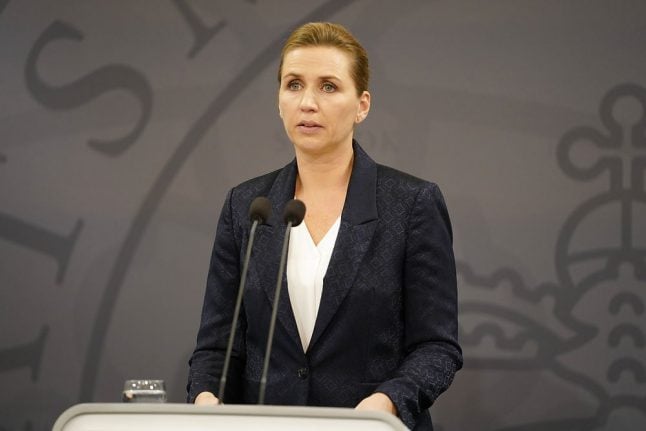Denmark is to significantly restrict social activity with new measures aimed at stemming a concerning trend of increasing cases of coronavirus in the Scandinavian country.
The new measures include:
- Mandatory facemasks in all indoor public places
- A ban on selling alcohol after 10pm (including at supermarkets and convenience stores)
- The assembly limit will be reduced to a maximum of 10 people
The timescale for the three measures differs: the facemask requirement will come into effect from October 29th, while the ban on alcohol sales takes effect from Monday. Both of these measures will remain in place until January 2nd 2021, Frederiksen said at Friday’s briefing.
The reduction of the assembly limit to a maximum of 10 people (from the current 50) becomes effective on Monday and will remain in place for an initial four weeks.
All restrictions already in place have also been extended until January 2nd, Frederiksen said. They had been scheduled to expire on October 29th. That means bars, restaurants and cafes will still be required to close at 10pm and facemasks will remain mandatory on all public transport.
The new facemask requirement will mean people in Denmark now face wearing the coverings in supermarkets and stores, libraries and all other indoor public areas. Children under 12 and others with health conditions contraindicating face mask use are exempted under the current Danish rules.
In addition to the restrictions, a new recommendation was also announced on Friday: to restrict social contacts to 10 people outside of your own household.
Frederiksen said she empathised with people in Denmark who are finding it hard to live with the ongoing restrictions necessitated by the pandemic, coining a new term, coronatrist, which can be translated to “corona blues”.
But she said the Covid-19 crisis is not over, stressing that “in recent weeks, Europe has truly been hit by a second wave”.
Without new restrictions, “we risk losing control in Denmark”, she said.
“”I'm asking you — once again — for us to get through this crisis, this time during the autumn,” the PM said with emotion apparent in her voice after announcing the tightened measures.
Denmark registered 859 new cases of coronavirus on Friday, the second consecutive day on which a new record has been set for the number of cases in a 24-hour period.
The figure of 859 is notably higher than Thursday's total of 760, which itself set a short-lived record as the highest daily number of new cases.
The 859 new infections came from 44,244 tests. That corresponds to a positive test rate of 1.9 percent, continuing an upward trend in the test positivity rate.
A total of 125 people are now hospitalised with coronavirus in Denmark according to SSI, an increase of 1 since yesterday. 18 are in ICU care – also 1 more than yesterday – and 13 of the 18 are receiving ventilator treatment, which also represents a one-person increase.
Three new deaths with Covid-19 were registered on Friday, bringing Denmark's death toll since the beginning of the pandemic to 697.
Frederiksen had warned of new, stricter measures even before Friday’s high total of new cases was announced, admitting they are likely to affect this year’s Christmas celebrations.
READ ALSO:Christmas parties face cancellation as Danish PM confirms incoming Covid-19 restrictions
She also stated on Friday evening that the government will “initiate further compensation packages for business and extend existing ones”.
Danish Health Authority director Søren Brostrøm encouraged members of the public to find a small group of people to socialise with – and not to invite more than 10 people to private gatherings.
“This applies no matter how big your home might be,” Brostrøm said.



 Please whitelist us to continue reading.
Please whitelist us to continue reading.
Thanks for the update Michæl! …. “contraindicating” is that a word? ?
Any chance you could tell is the age of those in hospital, in ICU and on ventilation?